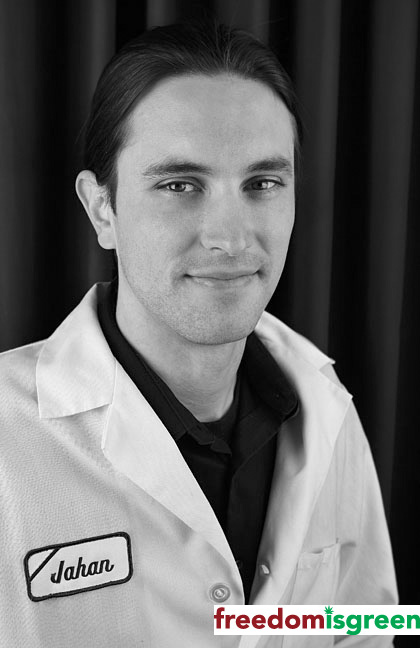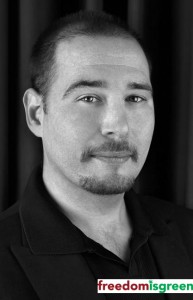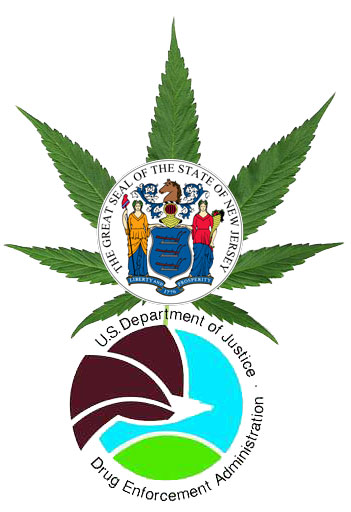4/12/2011 – The nascent medical marijuana program in New Jersey may change the laboratory research landscape for cannabis. Several of the first six Alternative Treatment Centers are planning heavy investments (tens of millions of dollars) into lab equipment and manpower. Although explained away as regulatory compliance the long-term profits from this type of science could be substantial.
In other states the legal medical marijuana industry consists of small businesses using a holistic model of care. The Garden State is exploring a centralized system modeled on corporate health care instead. This could be the biggest change yet for the domestic medical cannabis market.
The result could be a disaster for patients like Sandy Faiola in Asbury Park, NJ and Charles Kwiatkowski in Hazlet who both live with Multiple Sclerosis. They joined well-known MS patient Montel Williams on a recent Dr. Oz Show. All three use raw Cannabis flowers to treat their symptoms and they all must access the underground market for relief.
New Jersey’s draft regulations – set to be finalized in May – call for each licensed facility to grow just three strains of cannabis, all of them less than 10 percent THC. Patients would only be allowed two ounces per month. The soviet-style regulated supply will be inadequate for Chuck and Sandy. They may continue to face arrest even though they have supporting physicians and would fully qualify for the program because they will need to find better quality pot on the street.
The dust never really settled in NJ for the medical marijuana debate, the battle lines only shifted. Governor Chris Christie, a conservative Republican with national presence, has been right in the middle since his first day in office. While bulldozing through a difficult budget, the characteristically aggressive Governor also rolled his heavy tracks over local AIDS and cancer patients. He successfully delayed the implementation of the compassionate use law for over a year, now Christie is pushing forward a set of regulations for therapeutic cannabis have their roots in deepest bedrock of big-money politics.
Half of the first six Alternative Treatment Centers were awarded to groups who have close ties right back to the Christie Administration. Democrats suddenly got a green thumb too; another licensed ATC has the Deputy Majority Leader in the State Assembly, Thomas Giblin, on the medical advisory board.
Then the two top officials at the Department of Health and Senior Services who have overseen the NJ medical marijuana program for over a year, Dr. Poonam Alaigh and Dr. Susan Walsh, resigned just after the ATC awards. It was a strange and still unexplained twist, but somehow par for the course in NJ.
Now, even the most politically connected marijuana production centers in the country are still complaining about Governor Christie’s very unscientific ‘ten-percent cap’ on THC potency. Because of federal prohibitions cannabis research in the United States is very limited. By exploiting the current conflict between state and federal law the ATCs in New Jersey could be used to study marijuana and its component cannabinoids for pharmaceutical endeavors years down the road. Limiting THC might interfere with the super-lab concept.
But Sandy, Chuck and Montel don’t need research or something years away. Thousands like them risk arrest every day as Governor Christie demonizes medical marijuana programs in other states while select politicos are awarded the pot futures. The Compassionate Use Medical Marijuana Act had a model to bring sick and terminal patients out of the underground marijuana market. It was not passed as a plan to turn marijuana into a processed pharmaceutical.
Thankfully the Legislature is ready to act. Senator Nicholas Scutari has introduced SCR151, a resolution that would invalidate the worst parts of Governor Christie’s proposed regulations. The rare legislative maneuver is meant to maintain the integrity of the compassionate use law and the state Constitution. If successful, the move could re-focus the regulations on the patients instead of business interests. The Senate and the Assembly have already passed similar resolutions and it would not require the Governor’s signature.
Still, the fact that health insurance companies, pharmaceutical manufactures, mainstream political players and hospital groups now actually own most of New Jersey’s regulated marijuana market is a major sea-change for the issue. The debate is no longer centered on whether medical cannabis should be legal or not but who makes the money.
Seriously ill and terminal residents use marijuana safely every day. Humans have used it for thousands of years and American medical cannabis is already turning a healthy profit. But the big green bubble of the US cannabis economy is inflated only by federal policy; the current cost for high-grade medical cannabis is simply the price of prohibition. The mainstream corporate interests looking to farm some of that cash have found fertile ground in the Garden State.







